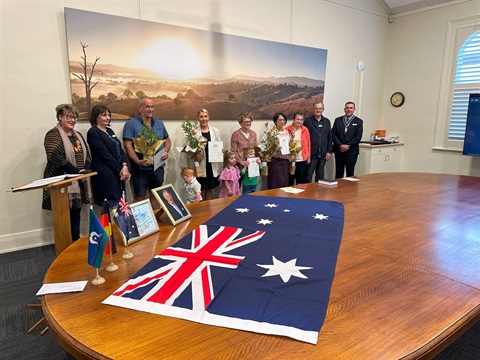“The Budget leaves millions of people stranded, giving the least to people who already have the least, and giving the most to those who have more. We should have given the most to people who needed it, and who are most likely to spend it,” said ACOSS CEO Dr Cassandra Goldie.
“Each job that may be created by the tax cuts will cost $475,000, whereas improving community services would create jobs at less than a quarter of the cost.
“As well as a permanent, adequate increase to JobSeeker and related payments, this Budget should have announced much bolder action to generate jobs, far more investment in care services including aged care and childcare, social housing, closing the gap services, support for people on temporary visas, and comprehensive support for people hit by unemployment who are at risk of struggling to get back into paid work.
“We welcome the wage subsidies announced for people under 35 but there must be clear protections so that longer term employment is not the outcome and subsidies need to also be available for people over 35.
“We also welcome the leadership of Minister Ruston in securing the continuation of equal pay funding for community services funded through her Department and the vital jobs and services that will be protected. We urge other Ministers to follow suit. ACOSS has long been calling for fair pay for the community service sector – made up of 80% women – to help tackle the gender pay gap and ensure communities receive the supports they need. Community services are vital at all times but especially in crisis. We must ensure these vital services have the funding they need to support people reaching out for help.
“We are however strongly opposed to the apparent intention to extend the damaging Cashless Debit Card. We are also strongly opposed to cuts that have been made to key services such as the supports to people seeking asylum, the dramatic drop of 5000 places for our humanitarian refugee program, and the proposal to require people to speak English if they are to succeed in migrating to Australia to join their spouse,” Dr Goldie said.
More details of our analysis below.
Budget stimulus measures are under-powered to generate jobs, relying on tax cuts is a gamble.
Unemployment remains far too high, yet support for jobs and incomes in this budget package has been more than halved compared to pre-budget stimulus announcements. Instead 70% of the new economic supports take the form of personal tax cuts and business investment incentives. This is a gamble because much of the tax cuts will be saved and business will only invest if there’s demand for their goods and services.
Unemployment is projected to peak at 8% in Dec 2020 and take 3 years to fall below 6%. We have a long way to go, of the jobs lost in April, only 40% have been restored so far. Yet the government is prematurely winding back supports for jobs and incomes:
• from $175B (8% of GDP) originally budgeted for 2019-20 and 2020-21
(including Jobkeeper, Jobseeker, household stimulus, business cashflow support)
• to around $60B over the remainder of the same period (of which $24B is personal tax cuts, $19B is business investment incentives, $6B is infrastructure, $4B is community and health services and $3B is cash transfers).
• That’s less than half the average monthly level of support for jobs and incomes provided in response to the COVID recession up until now.
The $3.8 billion JobMaker wage subsidy program will improve the job prospects of young people who are unemployed, but need to be extended to unemployed people aged 35 or more.
• Based on past experience, these wage subsidies worth $100 to $200pw applied to the 450,000 people under 35 years who are unemployed, could boost the overall number of jobs by up to 45,000.
• But experience with take-up of wage subsidies by employers suggests the subsidies will have to be doubled to generate that many positions.
• It’s worthwhile to subsidise jobs for young people who are otherwise at risk of long-term unemployment even if more jobs are not created overall. This could benefit 670,000 people under 35 years on unemployment payments.
• But it will come at the expense of the 930,000 people on unemployment payments who are over 34. The scheme should extend to people over 35 who are at risk of long-term unemployment.
Tax cuts do not benefit those most in need. Tax cuts for high income earners are permanent and worth twice as much as temporary ones for middle income earners.
• The extra tax cuts for middle income-earners ($40,000-$90,000), worth around $21pw, last for one year only whereas those for high income-earners (the top 10% of taxpayers on $120,000 and above) are worth twice as much (around $47pw), and they are permanent.
• This is because ”Stage 2” replaces the existing $21pw Low and Middle Income Tax Offset (LMITO) with an increase in the 19% threshold from $37,000 to $45,000.
• The tax tables in Budget documents suggest that middle income-earners gain up to $42pw, but that includes the $21pw tax cut people have been getting since July 2019. The additional tax cut for middle income-earners in this financial year comes from:
(1) The increase in the 19% tax threshold, which applies to fortnightly tax withholdings, saving up to 21pw
(2) Retention of the LMITO for this year only, so the equivalent of another $21pw can still be claimed in tax returns from July 2021 (as was the case last year).
• High income-earners benefit from an increase in the bottom threshold from the 37% tax rate from $90,000-$120,000 (saving $26pw), and also from the increase in the 19% threshold (saving $21pw).
Each job created by the tax cuts will cost $475,000, whereas improving community services generates jobs at less than a quarter of the cost.
• The personal tax cuts are estimated to create an extra 50,000 jobs over two years, at a cost of $23.8 billion, which is $475,000 per job.
• In contrast, The Australia Institute estimates that each job created by properly funding aged care costs $70,000, for health services $100,000 and for child care $50,000.
Cuts to National Housing and Homeless Agreement and failure to invest in social housing a major gap
• There is a $41m cut in the National Housing and Homelessness Agreement from 2021/22, which is extremely concerning given the housing stress experienced by so many in Australia.
• There is no investment in social housing, and only a one-off $100m for remote housing in Queensland and a small amount for the NT. Spending on remote housing is less than half that spent in 2017/18 at $237m for 2020/21.
More funding needed for Aboriginal and Torres Strait Islander people and communities
• We welcome the additional $33 million for funding for Aboriginal and Torres Strait Islander Health services. But concerned that there has been no additional funding for legal service support which is under additional pressures due to COVID-19 and bushfires. The only national dedicated program to ending the disadvantage of Indigenous people in the justice system has been abolished, replaced with the mainstream National Legal Assistance Partnership.
• We also welcome additional $150m in funding to extend the Indigenous Home Ownership Program that will support 360 home loans over next 3 years, but the failure to invest in new social housing is indefensible. Too many Aboriginal and Torres Strait Islander people are homeless or otherwise in unsuitable housing. This is a missed opportunity to provide local jobs, address homelessness and close the gap.
• We are disappointed that there was not additional funding for the new Closing the Gap agreement. The $46.5 million announced in August will only steady the ship and will not be enough to fund measures needed to meet the new 16 targets. Urgent funding is needed to support family violence prevention measures, including the National Family Violence Prevention Legal Forum.
Budget slashed for people seeking asylum
The government has slashed the budget for income support for people seeking asylum, cutting the allocation from $52.6m in last year’s budget to just $19.6m in 2020/21. The cuts to the Status Resolution Support Service (SRSS) – which provides some people seeking asylum a maximum payment of $255pw (single) – will severely limit income support for people seeking asylum, who have been excluded from accessing JobSeeker and JobKeeper during this pandemic.
Not everyone on a government payment will get access to the one-off $250
The one-off payments of $250 will go to pensioners (including people receiving Disability Support Pension and Carer Payment) as well as people receiving Family Tax Benefit UNLESS they receive a primary income support payment like JobSeeker or Parenting Payment. In other words, only families on middle incomes receiving Family Tax Benefit will get the $250 payments.
Concerns cashless debit will become permanent despite lack of evidence for its effectiveness
There is ongoing funding allocated for cashless debit, which is deeply disappointing given the continued absence of credible evidence that controlling how people spend their money delivers positive outcomes. This announcement would need legislation, but comes despite a further evaluation on the effectiveness of the trials yet to report, suggesting that its outcomes are not guiding the government’s decision to continue cashless debit indefinitely.
Nothing for Early Childhood Education and Care
No major announcements in the budget. Affordability and access for low-income families will be critical over the next year, especially as income supports drop. Need to see improvements assistance for temporary financial hardship and ensure very low-income families are accessing the ACSS Transition to Work subsidy. The suspension of the activity test to April next year is welcome.
Equal pay funding for community services
The commitment in this budget to ongoing equal pay funding for parts of the sector is welcome ($44M per year for DSS programs and $29M per year for family law services funded by AGD under the Family Relationships Services Program). The whole of government must follow the leadership of Minister Ruston and the Attorney-General to deliver certainty and commit to fair funding for all community services. We are continuing to consult with our members to ensure that commitments are adequate to secure vital jobs across the sector.







